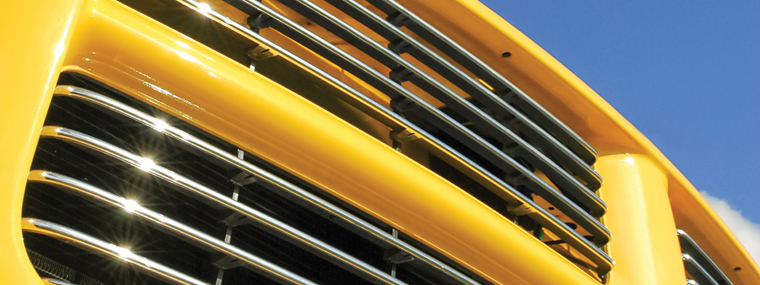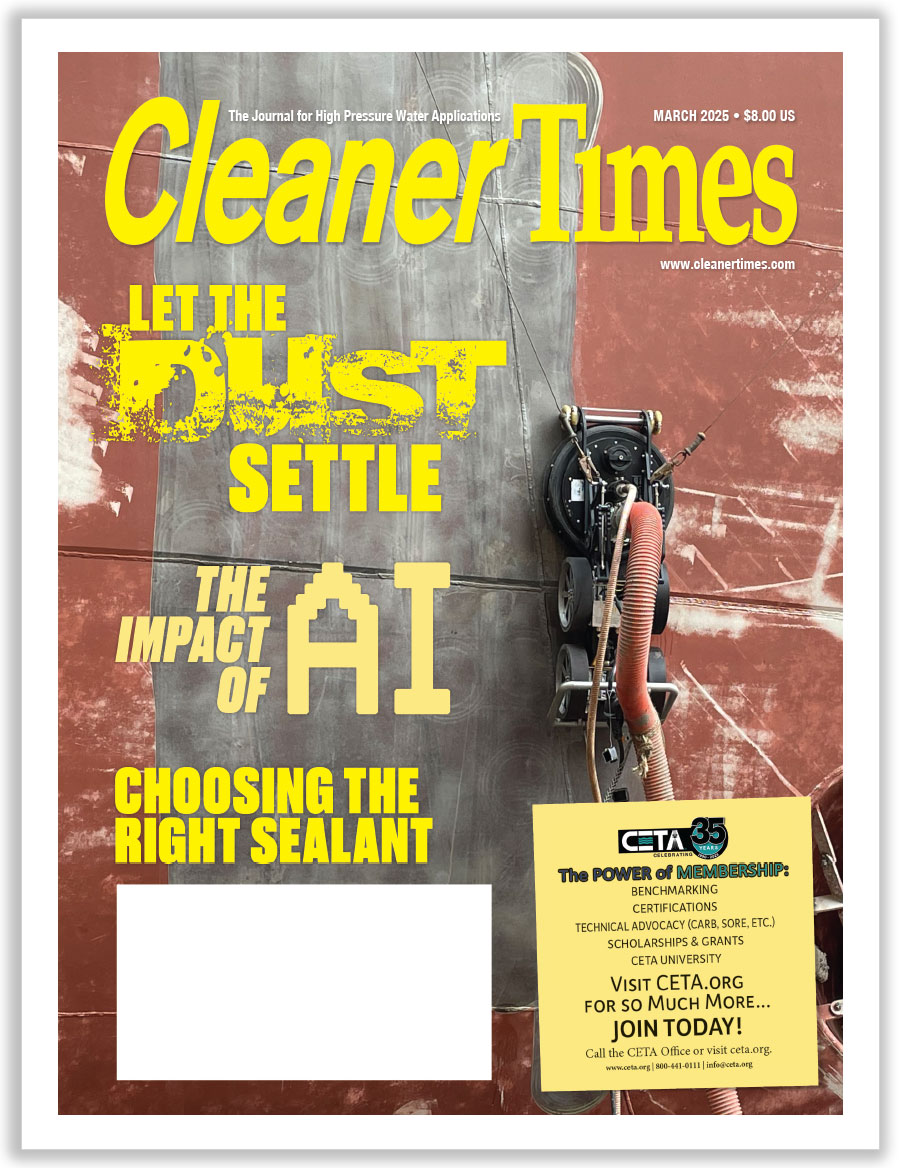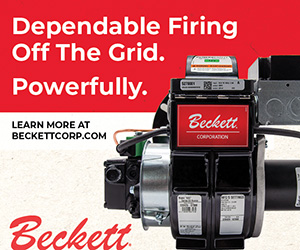
Pressure Washer’s Guidebook: Keep Your Rig at Its Best
By Diane M. Calabrese / Published May 2016

Do it yourself. Go preconfigured. Take a combo approach. When the subject is setting up a rig, the best option is the one that works for the contractor. The toolbox analogy looms large.
Sure, anyone can purchase a pre-loaded and pre-configured toolbox, but over time, frequency of use and special needs will dictate that tools get moved to new slots or jettisoned to make space for more specific ones. It’s the same with the equipment in tow to jobsites.
The word “rig” is an Americanism of a word that derives from “to bind or splice,” and its first definition is “to fit, as in sails or mast.” In our industry, we know it as a shorthand reference to a trailer—or just a vehicle (e.g., van)—used to carry equipment.
For a do-it-yourself arrangement of equipment, there are obvious considerations. Equipment used most frequently should be as easy as possible to offload and load. And all equipment must be secured during transport, not only to prevent the entire load from shifting and creating dangerous conditions in transit, but also to protect equipment from damage.
There’s an even more fundamental consideration, though. Where will the rig be going? “It’s one of the first considerations,” explains David Nezat, owner/operator of Nezat’s Pressure Washing in Lafayette, LA.
A beautiful rig that cannot be parked near the jobsite will create all sorts of unwelcome logistical issues, and dealing with the situation will be time consuming. Nezat uses a Ford F-350 with a 12-foot flatbed. “With growth, it’s a safer bet because it allows easier maneuvering in and out of residential areas,” he says. “I do mainly residential.”
One thing to realize about configuring a rig is that it’s always a work in progress. “There’s a lot of thought” that goes into it, says Nezat. That includes reevaluating and redoing as needed.
Among the basics Nezat carries are a side water tank with a chemical reservoir, an X-Jet, a J-Rod, and so on. “I do have one specialty tool,” says Nezat. “It’s a 12-volt rechargeable sprayer for spot cleaning, for cleaning around wooden doors.” The rechargeable sprayer is very handy, he explains.
Each rig will be different, reflecting the type of work a contractor does and also contractor preferences. See the sidebar on page 13 for a first-person account of how a rig changed as a company grew.
Dot, Rentals, Lists
With ever-more-stringent regulations concerning water use and reclamation, contractors must be prepared to carry more, including water, to jobsites. In many instances, having a trailer-mounted pressure washer with its own water supply will give a contractor an advantage in winning a job from many environmentally-conscious customers.
Distributors can customize a trailer for any contractor. Moreover, many distributors offer such a large range of preconfigured trailers that some contractors will find an option already made to their specifications.
One advantage of an all-in-one vehicle, such as a van, is that it reduces the points of interest for regulators. For example, any vehicle being towed must meet an additional array of state and federal requirements for brakes on axles, lighting, load balance, and point of attachment.
Then, there is the issue of a USDOT number. Does a trailer-type rig require a number from the U.S. Department of Transportation? The short answer is possibly not, but the correct answer is it’s probably best to just get one. The Federal Motor Carrier Safety Administration (FMCSA) at USDOT offers an easy online tool to guide companies with commercial vehicles, aiming to determine whether or not they need a number (www.fmcsa.dot.gov/registration/do-i-need-usdot-number).
Even though the DOT does not re-quire a number when not transporting hazardous material or when gross vehicle weight (or combination weight) is under 10,001 pounds, approximately two-thirds of states require a number irrespective of load or weight, so most contractors will be getting a number.
DOT uses the unique number to collect safety information and conduct audits and inspections, as well as to investigate incidents. One advantage of working with a distributor in the configuration of a rig is that the distributor can ascertain everything from lights to pintle meets regulations.
Many distributors will offer preconfigured trailers as rentals. A rental is a good option for contractors who want to try an arrangement for a period of time and determine whether it works well at most jobsites. It’s also a good choice for a contractor who needs an extra water tank for one job.

Finally, if seeking help from an expert on the distributor side of the industry, be prepared for a give-and- take discussion about prices and configuration with a wish-list in hand. Include pressure washer, accessories, water tank, reclamation equipment, and also the maximum weight that can be towed with an existing vehicle. Talk to a distributor and go from there.
While it’s possible to purchase a pre-configured or to customize a rig online, there’s a great deal to be said for interacting with the dealer in the real world. Physical contact with equipment allows the contractor to check out the all-important features. For a trailer that’s going to see a lot of movement—and most contractor trailers will—a welded frame adds strength. That’s just one example.
Small things can make a big difference in securing equipment. It may be a hanger for hoses that streamlines the arrangement of everything on a rig, or it could be a holster for wands. Contractors in the do-it-yourself mode will come to develop their own holders for securing ancillaries.
A distributor will be able to make suggestions about what will provide the easiest access and most convenience for a contractor and save time on a job. Of course, some of this give and take can also take place via an online chat.
Still, for contractors who like to kick wheels and touch the paint before buying, there is still nothing like being in the presence of equipment, including a rig, prior to purchasing it.
The other opportunity that getting to know a distributor affords is this one: it may be possible to negotiate for a bigger trailer rig on a trade-in basis as the contractor grows. While a pre-configured rig will likely make the optimal use of space, and that’s a good thing in terms of not pulling more weight than necessary, it does pose a limitation when a contractor wants to add something.
As both Nezat and Scott note, there is never really an endpoint when a contractor has the perfect rig. Making changes to a rig is as important as making changes to a business. A rig and a business both undergo modification, refinement, and growth. It keeps them at their best.
A Personal Account
Setting Up A Rig
Greetings from C. L. Scott, manager of Houston Washpros Power Washing! Two and a half years ago, I started out with a 5-ft x 8-ft single-axle utility trailer. One year later, we up-graded to a 76-in x 16-ft tandem-axle trailer. Both trailers were custom configured. Initially it was because we didn’t have enough information, money, or equipment to purchase a pre-configured rig. As we grow, we realize a custom configuration is the best decision for us and provides these benefits:
It allows us to grow with our business. We started out with a box store piece of equipment, a 2.3-gpm, 2600-psi cart pressure washer and a garden hose reel we actually took out of a trash pile. Now we have three 4-gpm skid units with hot water up to 250 degrees. We also have a 14-cfm, 20-gallon air compressor; an air-operated diaphragm pump; two 12v, 5.5 gpm sprayer pumps; two 225-gallon poly tanks; one 65-gallon poly tank; one 35-gallon poly tank; a Dayton electric reclaim unit; 5 full-frame hose reels; and more.
We pay cash for all of our equipment. Like most start-up businesses who prefer to grow organically without going into immediate debt and taking on payments, a custom-configured trailer allows us to grow with our business.
We were able to expand our list of services. By adding more equipment, our company expanded pressure washing services to include soft washing, roof cleaning, and more. By getting additional training and certifications, our business has grown more than 300 percent. This would not be possible had we purchased a pre-configured trailer, which, in most cases (if not all), are maxed out of space and unable to hold additional equipment.
Creating our custom-configured pressure washing trailer, we are able to provide exterior cleaning services for not only Houston but also San Antonio, Austin, and Dallas. It was no easy feat. The best resources for us were YouTube videos, online forums, magazines like Cleaner Times, and additional contractor networking. It takes longer and more time, but pays off in the long run. I continue to learn more and more about the exterior cleaning industry, which I love and am glad to be a part of, so that we can provide the best experience possible for all of our clients.
C.L. Scott is the owner/operator of Houston Washpros Power Washing in Houston, Texas.




